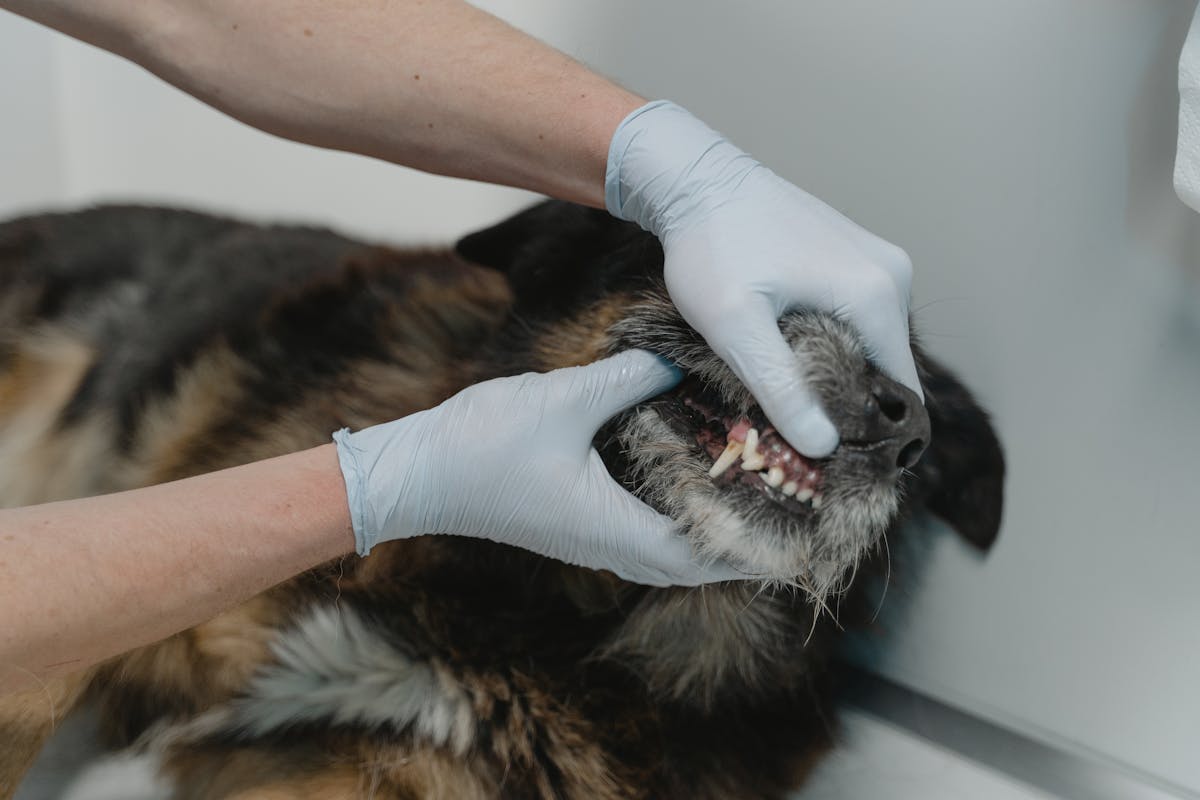Puppy teething is a challenging yet essential phase in your young dog’s development. Much like human infants, puppies go through a teething process that can cause discomfort and soreness in their gums.
During this time, your puppy will likely seek relief by chewing anything they can find, including furniture, shoes, and other household items.
Offering safe, effective remedies not only helps soothe your puppy’s sore gums but also encourages healthy chewing habits.
In this guide, we’ll explore the best ways to alleviate your puppy’s teething pain and keep them comfortable through this important stage of growth.
Table of Contents
ToggleWhen Does Puppy Teething Begin?
Puppy teething typically begins when your puppy is around three to four months old. The process can last until they are six to eight months old, depending on the breed and individual dog.
During this time, puppies lose their baby teeth and grow their adult teeth. You’ll likely notice your puppy chewing more frequently as they experience discomfort from their sore gums.
Understanding when teething occurs and recognizing the signs early can help you prepare for this stage and provide the necessary care to soothe your puppy.
Common Teething Symptoms in Puppies
Several common symptoms indicate that your puppy is going through the teething process. These include excessive chewing and biting as your puppy seeks to relieve gum soreness.
You may also observe increased drooling and occasionally swollen or bleeding gums. Some puppies experience behavioural changes, such as irritability or a lack of interest in eating.
Understanding these symptoms allows you to address your puppy’s discomfort effectively and provide relief in the form of safe chewing options and teething toys.
Why Teething is Uncomfortable for Puppies
Teething discomfort stems from the inflammation and pressure that occur as your puppy’s adult teeth push through their gums. As their baby teeth loosen and fall out, the gums can become tender, leading to increased sensitivity and soreness.
This process is natural, but it can be uncomfortable for your puppy, making them more prone to chewing and seeking relief. By offering the right teething remedies, you can help alleviate the pain and keep your puppy comfortable throughout this period.
The Role of Chewing in Soothing Sore Gums
Chewing plays a crucial role in soothing a teething puppy’s sore gums. The pressure exerted on the gums during chewing can relieve discomfort and reduce swelling.
Chewing also helps loosen baby teeth that are ready to fall out. However, it’s essential to provide safe, appropriate items for your puppy to chew on.
Durable chew toys designed for teething puppies are ideal, as they offer the right balance between softness and resistance, preventing damage to delicate gums while satisfying the puppy’s urge to chew.
Top Remedies for Puppy Sore Gums
There are several effective remedies you can offer to help soothe your puppy’s sore gums during teething:
- Frozen Chew Toys: Toys that can be frozen provide a cooling relief to inflamed gums. The cold helps reduce swelling and numbs the gums, offering temporary comfort. Look for teething-specific toys that are safe for freezing.
- Wet Washcloth: A simple, damp washcloth frozen for a few hours can soothe your puppy’s gums. The texture provides gentle relief, while the cold eases inflammation.
- Edible Teething Sticks: Teething sticks designed specifically for puppies are a great way to combine relief with a treat. These sticks are soft enough to be safe for tender gums but durable enough to keep your puppy occupied.
- Soft Rubber Toys: Soft rubber toys designed for puppies allow for gentle chewing and are an excellent option for puppies with more sensitive gums. These toys often have textured surfaces that massage the gums as your puppy chews.
- Natural Teething Gels: Some natural teething gels can be applied directly to your puppy’s gums to soothe discomfort. These gels typically contain ingredients like chamomile or clove, which are known for their calming and numbing effects.
What to Avoid: Dangerous Items for Teething Puppies
While many items can soothe your puppy’s sore gums, there are some things you should avoid when your pet is experiencing puppy teething.
Hard bones, antlers, or other overly rigid chew items can cause damage to a puppy’s delicate teeth and gums, leading to fractures or other oral health problems ensuring high dental care.
Additionally, toys or objects small enough to pose a choking hazard should be kept out of reach. Always ensure that any chew toy or remedy you provide is safe, durable, and designed for puppies.
The Importance of Supervising Your Teething Puppy
Supervision is essential when your puppy is teething. Puppies can be opportunistic chewers, and without proper monitoring, they may chew on inappropriate or dangerous objects.
By keeping a close eye on your puppy during this time, you can prevent accidents, ensure they are using safe chew toys, and stop destructive behaviour before it becomes a habit.
Supervision also allows you to intervene if your puppy becomes frustrated or overwhelmed by their teething discomfort.
Creating a Teething-Friendly Environment
A teething-friendly environment ensures that your puppy has access to a variety of safe, engaging toys to chew on. Puppy-proofing your home by removing items that could be destroyed or pose a danger to your puppy’s health is a critical step.
Additionally, offering a range of teething toys, from soft rubber chews to frozen treats, keeps your puppy interested and prevents them from chewing on furniture or other household items.
When to Seek Veterinary Help for Puppy Teething
While teething is a normal process, there are times when veterinary attention may be necessary. If your puppy exhibits extreme discomfort or excessive bleeding, or if you notice that their adult teeth are not coming in properly, consult your vet.
Additionally, if your puppy stops eating or shows signs of illness during teething, professional advice is needed to rule out any underlying issues.
Conclusion
Puppy teething is a natural but often uncomfortable phase of your dog’s early development. By understanding the process and providing the right remedies, you can help soothe your puppy’s sore gums and ensure they navigate this stage with ease.
From frozen chew toys to natural teething gels, the key is to offer safe and effective relief while encouraging healthy chewing habits.
A little preparation and care can go a long way in making teething a manageable experience for both you and your puppy.






